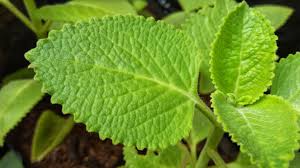Can Stevia Leaf Be Advised For People Suffering From Diabetes And High BP?
Also known as Stevia rebaudiana, stevia belongs to the Chrysanthemum plant family. It is abundantly grown in various tropical regions of Brazil, Paraguay, China and Japan.
Stevia’s Constitution
Stevia is a non-nutritive, intensely sweet plant in taste, whose sweetness quotient is 200 more than that of regular sugar. No wonder why it is being heralded as a natural, safe and a rather healthy substitute for sugar.
Stevia contains some important glucosides, including stevioside and rebaudioside A (reb A). These steviol glycosides are the sweet components which are essentially extracted from the plant’s leaf. That is perhaps why stevia is also fondly known as the ‘sweet-leaf‘.
Stevia for Diabetes and Hypertension
We all know that we need food for energy. While some foods give us instant energy, others do so rather gradually. But what really happens when this food goes inside our body? How exactly does it convert into energy, and allows us to carry out our daily activities. The answer lies with insulin – an essential hormone that, quite literally, keeps us going!.
The main function of insulin is to breakdown sugar to form glucose, send it across to our cells and then signal them to either use it up as energy, or store the same as fat for future use. In this manner, insulin prevents our blood sugar levels shooting too high, or going way down. An absence or deficiency of this hormone can contribute towards this chronic health condition that we call ‘diabetes’.
Stevia for Diabetes
Stevia leaf extract is about 30 – 40 times sweeter than sugar, and yet it does not affect our blood sugar levels. Sounds too good to be true, but that’s precisely how it is.
Stevia contains close to zero calories. Thus, while you consume it, you are much less likely to gain any additional calories. Also, it does not seem to have much effect on your blood sugar. Stevioside is a non-carbohydrate glycoside compound, which tends to get directly absorbed by the bacteria in the colon, post its breakdown. Thus, its consumption is much less likely to contribute towards a spike in blood glucose. As per some studies, stevia is said to trigger major reductions in blood glucose. The glucagon response also tends to drop after a meal, for those who have been consuming stevia on regular basis.
This is good news for diabetic patients, as they can now consume sweet nothings, without worrying about sugar levels spiking up, or other diabetic complications.
What is Hypertension?
Hypertension is another long term health condition wherein the force of the blood against the walls of our arteries remains persistently high. Our blood pressure at any given moment is determined not only by the amount of blood pumped by our heart, but also by how much our arteries have been resisting it. The more the blood being pumped, and the narrower the arteries, the more the pressure.
Interestingly, hypertension has no major symptoms as such, and tends to develop gradually over years. In fact, you could be suffering from hypertension for years altogether, without really knowing it. But prolonged hypertension can eventually lead to several chronic health conditions such as heart stroke, kidney damage, kidney failure, etc. In fact, it is one of the major causes behind premature most deaths, and over one-fourth of our worldwide continues to complain of suffering from hypertension.
Stevia for Hypertension
Among the eight essential glycosides present in stevia leaf extract, some have been observed to affect our rising blood pressure. They have a tendency to relax and dilate blood vessels. At the same time, these also increases urination, and paves way for the elimination of sodium from our body. In this manner, much less pressure is put on the heart and the overall Cardiovascular system, thus bringing a drop in the blood pressure.
At the same time, stevia plant also exhibits cardio-toning activity, which can potentially bring down our blood pressure and regulate the heartbeat.
Other Health Benefits of Stevia
Besides, stevia also contains a whole host of other health benefits.
- Stevia for Weight Loss – When you replace regular sugar with stevia in your food or beverages, you end up eating much less. The amount of sweetness tends to satiate your sweet tooth rather early, and keeps you full for longer. When you eat less, the chances of gaining weight reduce, and you can easily reduce or at least maintain your existing weight.
- It can lower the high cholesterol levels
- It prevents the growth and spread of oral bacteria, thus helping us maintain our dental health.
- It also looks after the skin, and prevents and treats eczema and dermatitis, two very common skin conditions.
About the Author:
Dr Sonica Krishan is Author and Speaker in the areas of Healthy and Joyous Living through Ayurveda, Meditation, Yoga and other Contemplative practices. She is a leading Ayurveda Professional in India. She is also Health Writer, Columnist, Editor, Ayurveda Consultant and Holistic Healing Coach. Dr Sonica is open for National as well as International Collaborations with interested people / institutions in fields of Ayurveda, Meditation and Yoga.
Dr Sonica Krishan’s Books are available at Amazon
Related Blogs:
Want To Replace Your Sugar With Natural Sweetener?
Ayurvedic Insight and Case Studies on Diabetes

